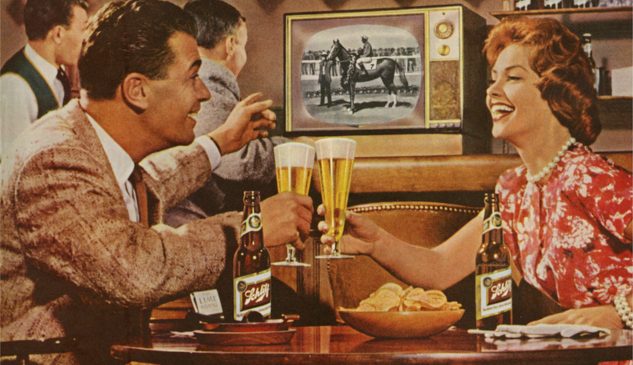Meet the Smithsonian’s New “Beer Historian,” Theresa McCulla

It’s not often that a job posting for a new historian at the Smithsonian Institution gets many views outside the realm of academia … much less goes viral online. But it’s also not often that the Smithsonian is searching for a “beer historian,” now is it?
With that in mind, it’s less surprising that the museum/historical archive’s job search for a beer historian sort of blew up when it was first announced back in July of 2016. At the time, I even had friends forwarding the link to me, telling me that I should be applying for the position despite being woefully underqualified in tangential fields such as “being a historian” and “doing historical research with primary sources.” Sure, I’ve written some basic histories for Paste on the advent of beer styles such as IPA, imperial stout and pilsner, but we’re talking about a slightly more serious level of academia here, folks.
Thus, it was no surprise to me when The Smithsonian announced the hiring of an extremely qualified candidate for the position this week in Theresa McCulla. A social and cultural historian of food in the U.S. from the early 1800s to today, “she has focused on the role of food and drink in generating ideas about history, culture and identity in America, and her experience and expertise in research, writing and collecting oral histories is extensive.” She’ll receive a doctorate from Harvard University in American Studies in May 2017 and holds a culinary arts diploma from the Cambridge School of Culinary Arts’ Professional Chefs Program. Upon starting the job of beer historian, she’ll be based out of the Smithsonian’s museums in Washington, D.C., “conducting research and new collecting, with special emphasis on homebrewing and the craft brewing industry.”
The museum published its own blog post asking a few questions of McCulla, detailing what beer can tell us about American history. To quote her reply on the scope of the project:
Beer, like other food and drink, makes tangible so many abstract ideas about American history and culture. Through brewing we can understand stories of immigration, urbanization, agriculture, and technology. Beer shows us how innovations in advertising and evolving consumer tastes have always gone hand in hand.
Wanting to get a slightly better feel for what the beer historian job will entail, and how beer geeks can expect to see the products of her research, I got McCulla on the phone Tuesday morning to discuss what is doubtless an exciting, sudsy opportunity to become an authority on the history of American brewing.
Paste: You have a culinary background, and vast experience in doing historical research on food and drink … but what now leads you specifically to beer?
McCulla: My culinary background does come into play, because I’ve always been interested in the sensory and tactile process of making food and helping people enjoy food, but more importantly I’m coming in as a historian, someone with a passion for history. I believe beer history has the potential to really interest the broader public in terms of its impact on issues as diverse as American immigration and advances in transportation. Through beer, we can understand much bigger themes and questions about the country’s development.
Paste: This job posting was shared all over when it was announced. I think a lot of beer geeks somewhat unrealistically looked at it as a “dream job” without considering what it would actually entail. Were you aware that you were probably going up against a very large number of candidates?
McCulla: I think the museum was extremely excited about the enthusiasm that was shown for the project. I was one of those people who was kind of amazed that such an opportunity existed. I think it means there’s a great energy out there waiting for the work we’ll do, which is so exciting for a historian. It’s a privilege to be part of the collecting and archiving of these archival sources that can be used by the public. It gives me an opportunity to work at both the beginning and the end of the historic process.
Paste: The easiest way for me to understand where you’re coming from as a beer consumer is simply to ask: What are your favorite beer styles?
-

-

-

-

-

-

-

-

-

-

-

-

-

-

-

-

-

-

-

-

-

-

-

-

-

-

-

-

-

-

-

-

-

-

-

-

-

-

-

-








































